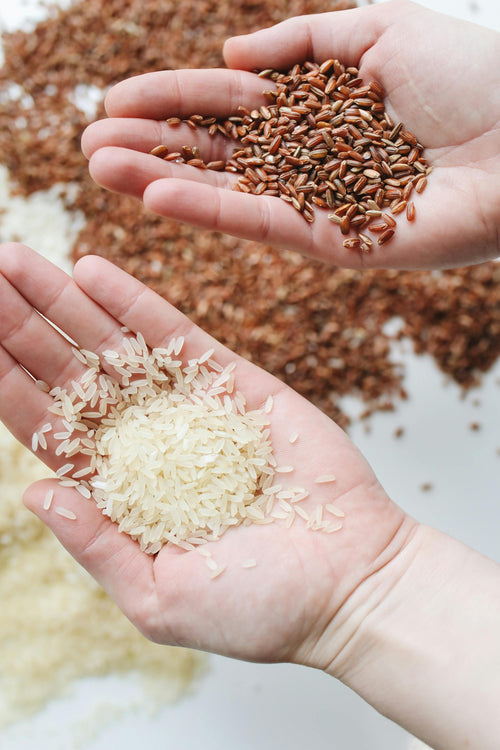What you must remember :
- Probiotics are the good bacteria that make up our intestinal microbiota
- The child's microbiota evolves throughout their life and depends on environmental factors including diet.
- It is important to favor strains suitable for children and to provide the body with sufficient probiotics for a good balance of the intestinal microbiota.
- Taking probiotics is recommended from birth and there are no contraindications to taking them. However, pediatric advice is strongly recommended.
The benefits of probiotics for children
1 - Their overall role in the child's microbiota
THE probiotics are so-called “friendly” bacteria supporting our own good intestinal bacteria, those which populate our tube digestive and especially our colon. Probiotics thus help to strengthen the intestinal microbiota and to fight against the disappearance of certain essential and protective bacteria. Several studies have shown the individual effects of probiotics that may play a role in health and disease in newborns, infants and children.
At birth, the child's microbiota depends on the type of birth by which he was brought into the world. In fact, the child does not have a microbiota before giving birth. During his birth, he will thus ingest the bacteria from his mother's microbiota, which will allow him to constitute his own microbiota. If the child is born during a vaginal delivery, he will then acquire the vaginal, skin and sometimes fecal microbiota of his mother. On the other hand, if the child is born by cesarean section, he only benefits from his mother's skin microbiota, and will be deficient in certain good bacteria. It may then be more vulnerable to infections. Have a intestinal microbiota balanced is essential for good digestive, immune and even mental health.
After childbirth, the child's microbiota continues to evolve throughout its life. It will then depend on environmental factors such as its food , his lifestyle, his consumption of antibiotics, his stress , exposure to pollution and microbes…
2 - To strengthen the immune system
THE probiotics will support the children's intestinal barrier. Keeping an intact intestinal barrier helps prevent the entry of bad bacteria and viruses through the intestines and bloodstream, reducing the risk of infections.
THE probiotics have the advantage of stimulating immune cells, which strengthens the immune system . They also help regulate the signaling of inflammation and immune system , to avoid excess inflammation.
3 – To improve digestive health
THE probiotics are particularly known for improving the digestive comfort . By contributing to the maintenance of a healthy intestinal microbiota, probiotics help counterbalance the harmful effects of antibiotics on the digestive level.
They aim to fight against digestive disorders. In children, probiotics are useful in preventing colic. infants and the diarrhea . Several studies have shown that the use of probiotics improves the duration of infectious diarrhea in children with mild to moderate diarrhea.
Finally, probiotics also have the power to facilitate the absorption of nutrients such as calcium, useful for the growth and development of children.
4 - To prevent skin problems and allergies
As mentioned above, probiotics can modulate the body's immune response to allergens, and can thus reduce the risk of allergic reactions.
They can also reduce allergic sensitivity in children.
They also have the benefit of reducing childhood eczema. These good bacteria help maintain good intestinal permeability, but also good permeability of the skin. This helps limit the infiltration of allergens and irritating products responsible for eczema flare-ups.
Types of probiotics suitable for children
1 - The strains most suitable for children
Certain probiotic strains are particularly beneficial for children.
The two most commonly studied probiotics are Lactobacillus rhamnosus and Saccharomyces boulardii. Lactobacillus rhamnosus, present in the DIJO children's microbiota probiotic, is also the strain of probiotics which has shown its benefits most consistently, compared to other strains. This strain is generally very well tolerated by children, and helps support their digestive health by reducing diarrhea. Other probiotic strains have also been proven to help maintain children's health. Among them are Bifidobacterium lactis, Lactobacillus acidophilus, Bifidobacterium infantis, Lactobacillus casei, etc.
2 - Potential side effects
Overall, probiotics are considered safe for most healthy children, but there may be risks for some, including children who are immunocompromised or those with underlying health conditions. Therefore, we recommend that you follow the recommendations of a health professional.
Side effects of probiotics may include symptoms like mild gastrointestinal upset with bloating Or gas . This is why we recommend that you follow the dosage carefully, and pay attention to the child's good tolerance at the start of the treatment.
Sources of probiotics for children
1 - Foods rich in probiotics for children
There are many Foods rich in probiotics , which, as part of a varied and balanced diet, can boost the child's intestinal microbiota.
#1 – Yogurt
Yogurt is obtained following the fermentation of milk by lactic acid bacteria. It naturally contains two strains of bacteria (Lactobacillus bulgaricus and Streptococcus thermophilus), but some of them are additionally supplemented with other types of bacteria from the genera Bifidobacterium and Lactobacillus , useful for the intestinal microbiota of children. As a general rule, this food can be introduced around the age of 6 months, ensuring that it is formulated for this age (without additives and without colorings).
#2 – Kefir
Kefir is a drink made from fermented milk. It has a wide variety of bacterial strains (more than in yogurt) including several strains of lactobacilli. In general, kefir can be introduced into the diet around the age of one year, when the child's digestive system is already more mature. We advise you to introduce it in small quantities at the beginning of its consumption, to avoid any bad reactions.
#3 – Sauerkraut
Sauerkraut is fermented cabbage, a natural source of probiotics. Due to its quite strong flavor and texture, we advise you to introduce it after the age of one year, and just like kefir, in small quantities at the beginning.
2 - Probiotic supplementation adapted for children
Supplementation with specific probiotics for children, from a very young age, therefore remains essential for maintaining their overall good health. It is also particularly recommended if the child has food preferences or food allergies/intolerances, which do not allow him to consume the foods rich in probiotics .
At DIJO, we offer you Children's Probiotics , a product suitable for the youngest, which can be consumed from birth thanks to its content of 10 billion CFU*. Containing 1 strain of bifidobacterium and 2 strains of lactobacillus, Child Probiotics helps balance your child's intestinal flora and thus stimulate their immune system to fight against all types of diseases. Child Probiotics is packaged in the form of capsules, which is why, for children under 6 years old, we recommend opening the capsules, and diluting their contents in water, a drink or a bottle, 30 minutes before the solid meal, if the latter is already integrated into eating habits.
*CFU: Colony forming units, estimation of the number of bacteria
Sources:
[1] Newlove-Delgado, T., Abbott, R.A., & Martin, AE (2019). Probiotics for children with recurrent abdominal pain. JAMA pediatrics , 173 (2), 183-184. https://doi.org/10.1001/jamapediatrics.2018.4575
[2] Slattery, C., Cotter, PD, & O’Toole, PW (2019). Analysis of Health Benefits Conferred by Lactobacillus Species from Kefir. Nutrients , 11 (6), 1252. https://doi.org/10.3390/nu11061252
[3] Pérez C. (2015). Probióticos en la diarrhea aguda y asociada al uso de antibióticos en pediatría [Probiotics for the treating acute diarrhea and preventing antibiotic-associated diarrhea in children]. Hospital nutrition , 31 Suppl 1 , 64–67. https://doi.org/10.3305/nh.2015.31.sup1.8709
[4] Yang, B., Lu, P., Li, MX, Cai, XL, Xiong, WY, Hou, HJ, & Ha, XQ (2019). A meta-analysis of the effects of probiotics and synbiotics in children with acute diarrhea. Medicine , 98 (37), e16618. https://doi.org/10.1097/MD.0000000000016618
[5] Onubi, OJ, Poobalan, A.S., Dineen, B., Marais, D., & McNeill, G. (2015). Effects of probiotics on child growth: a systematic review. Journal of health, population, and nutrition , 34 , 8. https://doi.org/10.1186/s41043-015-0010-4


















